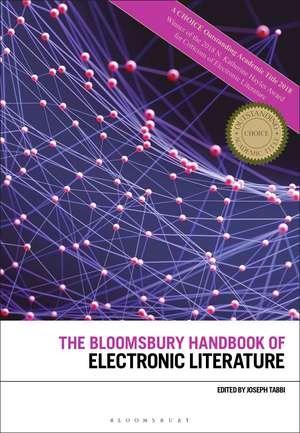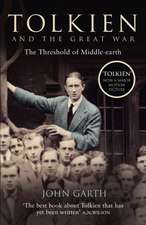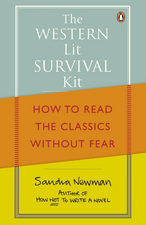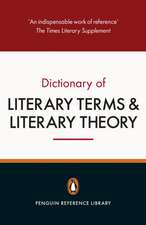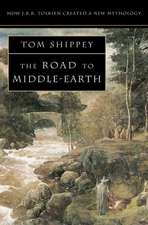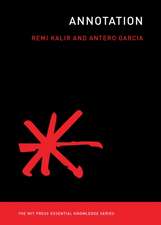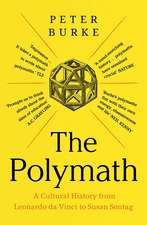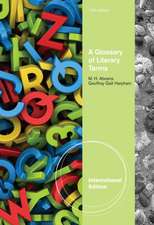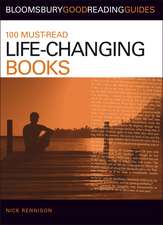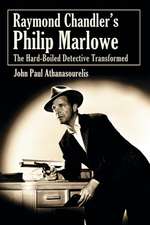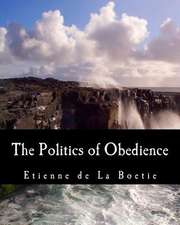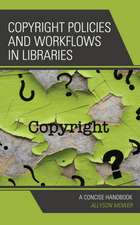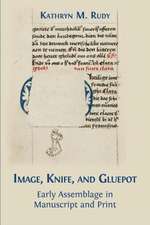The Bloomsbury Handbook of Electronic Literature: Bloomsbury Handbooks
Editat de Professor Joseph Tabbien Limba Engleză Paperback – 27 noi 2019
| Toate formatele și edițiile | Preț | Express |
|---|---|---|
| Paperback (1) | 247.39 lei 6-8 săpt. | |
| Bloomsbury Publishing – 27 noi 2019 | 247.39 lei 6-8 săpt. | |
| Hardback (1) | 732.44 lei 6-8 săpt. | |
| Bloomsbury Publishing – 29 noi 2017 | 732.44 lei 6-8 săpt. |
Din seria Bloomsbury Handbooks
- 41%
 Preț: 208.30 lei
Preț: 208.30 lei - 43%
 Preț: 640.21 lei
Preț: 640.21 lei - 44%
 Preț: 673.52 lei
Preț: 673.52 lei - 45%
 Preț: 141.20 lei
Preț: 141.20 lei - 43%
 Preț: 637.37 lei
Preț: 637.37 lei - 39%
 Preț: 696.17 lei
Preț: 696.17 lei - 41%
 Preț: 208.38 lei
Preț: 208.38 lei - 43%
 Preț: 679.49 lei
Preț: 679.49 lei - 43%
 Preț: 635.92 lei
Preț: 635.92 lei - 44%
 Preț: 626.47 lei
Preț: 626.47 lei - 41%
 Preț: 208.18 lei
Preț: 208.18 lei - 43%
 Preț: 197.67 lei
Preț: 197.67 lei - 41%
 Preț: 207.06 lei
Preț: 207.06 lei -
 Preț: 129.81 lei
Preț: 129.81 lei - 39%
 Preț: 680.07 lei
Preț: 680.07 lei - 44%
 Preț: 673.52 lei
Preț: 673.52 lei - 43%
 Preț: 638.78 lei
Preț: 638.78 lei - 39%
 Preț: 682.82 lei
Preț: 682.82 lei - 21%
 Preț: 278.65 lei
Preț: 278.65 lei - 43%
 Preț: 634.04 lei
Preț: 634.04 lei - 43%
 Preț: 631.68 lei
Preț: 631.68 lei - 43%
 Preț: 632.61 lei
Preț: 632.61 lei - 44%
 Preț: 626.47 lei
Preț: 626.47 lei - 43%
 Preț: 637.84 lei
Preț: 637.84 lei - 45%
 Preț: 137.40 lei
Preț: 137.40 lei - 44%
 Preț: 141.67 lei
Preț: 141.67 lei - 43%
 Preț: 824.17 lei
Preț: 824.17 lei - 12%
 Preț: 198.96 lei
Preț: 198.96 lei - 43%
 Preț: 633.96 lei
Preț: 633.96 lei - 43%
 Preț: 731.21 lei
Preț: 731.21 lei - 43%
 Preț: 640.88 lei
Preț: 640.88 lei - 43%
 Preț: 679.85 lei
Preț: 679.85 lei - 43%
 Preț: 632.80 lei
Preț: 632.80 lei - 10%
 Preț: 218.15 lei
Preț: 218.15 lei - 43%
 Preț: 685.76 lei
Preț: 685.76 lei - 43%
 Preț: 688.12 lei
Preț: 688.12 lei - 43%
 Preț: 631.97 lei
Preț: 631.97 lei - 44%
 Preț: 626.47 lei
Preț: 626.47 lei - 21%
 Preț: 897.24 lei
Preț: 897.24 lei - 12%
 Preț: 201.62 lei
Preț: 201.62 lei - 44%
 Preț: 721.05 lei
Preț: 721.05 lei - 43%
 Preț: 683.36 lei
Preț: 683.36 lei -
 Preț: 821.51 lei
Preț: 821.51 lei - 44%
 Preț: 626.47 lei
Preț: 626.47 lei - 44%
 Preț: 814.68 lei
Preț: 814.68 lei - 21%
 Preț: 228.89 lei
Preț: 228.89 lei - 43%
 Preț: 686.61 lei
Preț: 686.61 lei
Preț: 247.39 lei
Preț vechi: 294.28 lei
-16% Nou
Puncte Express: 371
Preț estimativ în valută:
47.34€ • 50.62$ • 39.47£
47.34€ • 50.62$ • 39.47£
Carte tipărită la comandă
Livrare economică 17 aprilie-01 mai
Preluare comenzi: 021 569.72.76
Specificații
ISBN-13: 9781350126756
ISBN-10: 1350126756
Pagini: 464
Dimensiuni: 169 x 244 x 29 mm
Greutate: 0.84 kg
Editura: Bloomsbury Publishing
Colecția Bloomsbury Academic
Seria Bloomsbury Handbooks
Locul publicării:London, United Kingdom
ISBN-10: 1350126756
Pagini: 464
Dimensiuni: 169 x 244 x 29 mm
Greutate: 0.84 kg
Editura: Bloomsbury Publishing
Colecția Bloomsbury Academic
Seria Bloomsbury Handbooks
Locul publicării:London, United Kingdom
Caracteristici
Includes chapters written by the leading international scholars and artists in the field, covering foundational theory, new media contexts and creative practice
Notă biografică
Joseph Tabbi is Professor in the Department of English at the University of Illinois at Chicago. He is Editor of the Electronic Book Review, a former President of the Electronic Literature Organization and his previous publications include Postmodern Sublime (1995), Cognitive Fictions (2002) and Nobody Grew But the Business: On the Life and Work of William Gaddis (2015).
Cuprins
Acknowledgments Introduction, Joseph Tabbi (University of Illinois at Chicago, USA) Ends, Beginnings 1. I Hold It Toward You: A Show of Hands, Shelley Jackson (The New School, USA) 2. Our Tools Make Us (And Our Literature) Post, Steve Tomasula (University of Notre Dame, USA) 3. Lift This End: Electronic Literature in a Blue Light, Stuart Moulthrop (University of Wisconsin-Milwaukee, USA) 4. The Advent of Aurature and the End of (Electronic) Literature, John Cayley (Brown University, USA) Poetics, Polemics 5. "Your Visit Will Leave a Permanent Mark": Poetics in the Post-Digital Economy, Davin Heckman (Winona State University, USA) and James O'Sullivan (University of Sheffield, UK) 6. Literature and Netprov In Social Media, a Travesty, or, In Defense of Pretension, Rob Wittig (University of Minnesota Duluth, USA) 7. Narrativity, Daniel Punday (Mississippi State University, USA) 8. Cognition, David Ciccoricco (University of Otago, New Zealand) 9. Experimentalism, Álvaro Seiça (University of Bergen, Norway) 10. Writing Under Constraint, Manuel Portela (University of Coimbra, Portugal) 11. Electronic Literature and the Poetics of Contiguity, Mario Aquilina (University of Malta, Malta) 12. Combination and Copulation: Making Lots of Little Poems, Aden Evens, (Dartmouth College, USA) 13. A Glitch Poetics: Reading of Speed Readers, Erica Scourti, Predictive Text, and Caroline Bergvall, Nathan Jones (Royal Holloway, University of London, UK) Materialities, Ontologies 14. Flat Logics, Deep Critique: Temporalities, Aesthetics and Ecologies in Electronic Literature on the Web, Allison M. Schifani (University of Miami, USA) 15. Immanence, Inc: Algorithm, Flow, and the Displacement of the Real, Brian Kim Stefans (University of California, Los Angeles, USA) 16. Hypertext, Astrid Ensslin (University of Alberta, Canada) and Lyle Skains (Bangor University, UK) 17. Internet and Digital Textuality: A Close Reading of 10:01, Mehdy Sedaghat Payam (Iranian Institute for Research and Development in Humanities (SAMT), Iran) 18. Of Presence and Electronic Literature, Luciana Gattass (University of Hong Kong, Hong Kong) 19. Post-modern, Post-Human, Post-Digital, Laura Shackelford (Rochester Institute of Technology, USA) Economies, Precarities 20. Post-Digital Writing, Florian Cramer (Rotterdam University, Netherlands) 21. Unwrapping the eReader: On the Politics of Electronic Reading Platforms, David Roh (University of Utah, USA) 22. Scarcity and Abundance, Martin Paul Eve (Birkbeck, University of London, UK) 23. Relocating the Literary: In Networks, Knowledge Bases, Global Systems, Material and Mental Environments, Joseph Tabbi (University of Illinois at Chicago, USA) Annotated Bibliography for Electronic Literature Index
Recenzii
Tabbi (English, Univ. of Illinois, Chicago) has organized his foundational handbook in four parts that provide a needed framework for the work in this field. The first two sections-"Ends, Beginnings," "Poetics, Polemics"-work their way through the key insights and concepts developed since the inception of the field. The other two sections-"Materialities, Ontologies," "Economies, Precarities"-provide key essays on how electronic literature's formats have helped to define contemporary digital life. Including an annotated bibliography of major texts in this field, this is an invaluable resource for those interested in where literature is going. Summing Up: Essential.
